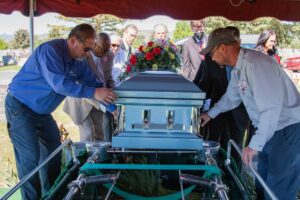Below is a transcript the the video:
Hello and welcome to Funeral Facts with Deacon Mark,
Excited to be here with you today, we’re going to talk about a topic that we get a lot of questions about and that is cremations.
I want to talk about cremation first and foremost and be very clear as to the approach we’re going to take and talking about cremations today because when you bring up cremations, you have people all over the place. Some that feel very strongly of cremation should occur. People that feel strongly of cremations shouldn’t occur.
We’re not going to go into what should or shouldn’t happen but really stick to what DOES the church teach about Cremation? And so there’s three pieces that we’re going to go through today we’re going to answer the question;
- Does the church permit cremation?
- How do you care for the ashes?
- What happens at mass with regards to cremated remains?
Those will be the three topics we’re going to talk about but for today we’re going to start about with the question that we get all the time is that does the church permit cremation?
So the answer to that is yes, the church does permit Cremation. Since 1963, the Church has officially permitted Cremation and in the last couple years, they’ve given some great direction on helping us understand the why behind Cremation and so there’s two documents always helpful to learn a little bit about why the church teaches what it does, and so there’s two documents that I really encourage if you have questions about why does the church teach this, and what we’re going to talk about today.
I’d encourage you first and foremost to go to a document that was put out by Pope Francis in 2016, it’s instructions on regarding the burial of a deceased and the conservation of ashes of cremated remains and so that was put out in 2016 and the Vatican does a really nice job of explaining some of the background behind how we should care for a body whether it is a full body or whether it is cremated.
Just recently back in March the American Bishops put out an amazing document on the proper disposition of the bodily remains and so that one also goes into some great detail talking about why does the church teach what it teaches. Really would encourage you to look at those two and we’ll provide some web links for those as well.
So, the church does permit cremation but it’s very clear, we need to be very clear about it, Permits cremation, but the preference is always a bodily burial and so you might be asking why is that the case and so let me quote from what the American Bishops put out in the proper disposition of the bodily remains.
They wrote, “The church considers burial to be the most appropriate way of manifesting reverence for the body of the deceased. As it is clearly an expression of our faith and hope in the resurrection of the body. While the church permits cremation unless it is chosen for reasons contrary to the Catholic faith, the preferred method is burial”
There’s a couple key things within that.
One is a cremation is permitted but two that full burial of the body is what is preferred out of reverence for the body and also expression of faith in life everlasting and in the resurrection. There’s an interesting statement within that it says that the cremation is permitted as long as there’s you’re not doing it choosing it for reasons contrary to the Catholic faith.
So what is that mean?
You’re not doing you don’t want to do cremation to say hey “I don’t believe in the resurrection so I’m going to cremate my body” that’s not accordance with our faith and that would be a reason to say we shouldn’t really do the cremation because you we do believe in the resurrection that is a basis of our faith.
The idea being is that the cremation is permitted but still for a lot of different reasons spiritual psychological reasons for those that remain behind, the bodily burial is the preferred. The other piece that they wrote is the body is not something that is used temporary by the soul as a tool and that can ultimately be disregarded as no longer useful.
Jesus Christ has promised that one day at the final resurrection, the souls of the dead will be reunited with their bodies. Jesus himself did not leave his body in the tomb but rather rose from the dead with his own body.
Christ rose from the dead with his body and all. For that same reason as an expression of our faith in the resurrection. Burial of the body is what is preferred.
So, to answer this week’s question, is Cremation Permitted?
It is permitted. But the burial of the whole body is preferred.
Gave you two documents that the church has written. There’s another book that outlines his teachings and are the history of death and beliefs of Christianity around death and burial? That is a Scott Hahn book, Hope to Die is another great resource you can use to learn a little bit more about it.
So, That’s this week’s Funeral Facts with Deacon Mark,
Make it a blessed week!
Other Resources:
Presentation of the Instruction Ad resurgendum Cum Christo regarding the burial of the deceased and the conservation of the ashes in the case of cremation:
https://press.vatican.va/content/salastampa/en/bollettino/pubblico/2016/10/25/161025b.html
U.S. Bishops’ Doctrine Committee Issues Statement on the Proper Disposition of Bodily Remains:
https://www.usccb.org/news/2023/us-bishops-doctrine-committee-issues-statement-proper-disposition-bodily-remains
Catholic Funeral & Cemetery Services of Colorado
A Ministry of the Archdiocese of Denver
Funeral | Cremation | Cemetery |



